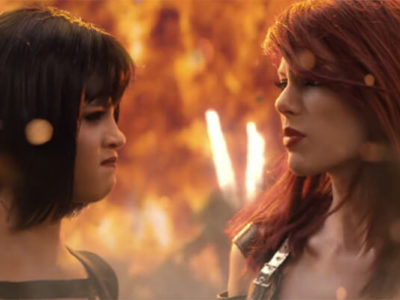When I first came to UW-Madison, I didn’t know a soul. In fact, I was the only graduating senior from my entire school district to make the leap from small town Michigan to Big Ten Madison. For the first few weeks, I meandered around campus like a lost baby badger, going from one “welcome party” to another, but never quite clicking with anyone enough to see a fulfilling friendship in our future. But life went on, and for a few months, I was content to populate my social life with a roster of people with whom I was friendly, but not enough to have an Oscar-worthy 3 a.m. heart-to-heart.
On the day of the 2012 presidential election, I wandered into the 9th floor den of my dorm. Most of the floor was already assembled around the TV, watching election coverage while surrounded by University Housing trays with dinners at various stages of consumption. In the corner, I noticed a girl wearing a shirt proclaiming “Rogers/Stark 2012 — Avenge America” and made my way over to her as quickly as subtlety would allow.
I could talk about The Avengers. I could talk about The Avengers for hours. The Avengers was my jam. I tapped her on the shoulder, complimented her on her aptly-timed political apparel and asked if The Avengers was her jam, too.
Five hours later, Barack Obama had been elected president again and we were still talking. I knew this could be something special — everyone had always told me that I’d make my life-long friends in college. For the first time, I believed them.
And for a while, we absolutely were. We became a unit; our names said in one breath more often than not. We were Ann Perkins & Leslie Knope and Rachel Green & Monica Geller. We moved in together before my sophomore year, made plans for after graduation, dreamed up road trips and goals and didn’t even consider the possibility they wouldn’t happen.
Then things started to fall apart. At the beginning of my junior year, we started fighting. Little things, like someone forgetting to turn the stove off or drinking the last of the lemonade. Then not so little things. If I hadn’t texted her for a few hours, my friend would go on the defense and shut me out, assuming the lack of correspondence was due to some sudden desire on my part to end our friendship.
The resulting confrontations were like pulling teeth; painful, ugly and forced. Assumptions and miscommunications started piling up, and I could feel a slow corrosion occurring, rotting away at our once carefree friendship. There were still good days, filled with Hawaii Five-0 marathons and late night confessions, but the bad days were growing in number, punctuated by cold, prickly silences and me desperately trying to figure out what had gone wrong this time. A cycle started to form. We’d fight, I’d have us talk things out and we would go to bed reconciled. Everything would be fine for some time — a few days, maybe a week or two. Then something would come up again, and we were back at square one.
Through the fall and early winter, I spent countless hours on the phone with my mom, asking her for advice and venting my annoyances in hopes that I would go home to my friend feeling lighter. Sometimes it worked, sometimes it didn’t. Come spring, our talks and make-ups began to feel more like a topical fix to a systemic problem — each apology now felt like a Band-Aid being smoothed over a gangrenous limb. Our friendship had turned septic. Taylor Swift’s “Bad Blood” was suddenly hitting uncomfortably close to home.
Shortly after the end of my junior year, everything came to a head. I was home visiting my family and subsequently fell off the radar for a bit. What little communication I had with my friend was stilted, and by the end of the trip, when I responded to one of her texts a day or so late, the only answer I got was “Go to hell.” I knew I could probably find the right things to say to smooth us over for a little while longer, but the mere thought of enduring that kind of constant stress for another year-long lease had me hyperventilating. My mom found me after that on my bed, one hand curled around my phone, the other around my dog for some fuzzy emotional support.
“This isn’t a friendship anymore, Lindsay,” she said. “It’s emotional abuse now.”
That’s when I started to cry. Deep down, I’d known that for a while. But I hadn’t wanted to admit it. For almost three years, this girl had been my closest confidant, my partner in crime, my late-night sounding board. I thought she’d be the maid of honor at my wedding one day. The idea of losing this friendship, however broken it had become, was still excruciating to me. But I knew that if I didn’t do anything, my senior year would be fraught with more stress and sadness than I could cope with.
Nobody ever really talks about how hard it is to experience a “best friend breakup.” Suddenly half of my stories included an awkward stumble over the word “friend,” as I realized there should probably be an “ex” in there now. I had to let myself mourn a friendship that I thought would never die.
It wasn’t easy, but it also wasn’t the end of the world. Trapping myself in a soured friendship because I was afraid of what I’d lose had just kept me unhappy, and no one is worth compromising your happiness for. I knew I had to start living for me again. In just the last few months, I’ve met some awesome people and had experiences I know I’ll remember for ages. Perhaps part of me will always miss the friend that I lost, but you know what? I’m going to be OK.



















